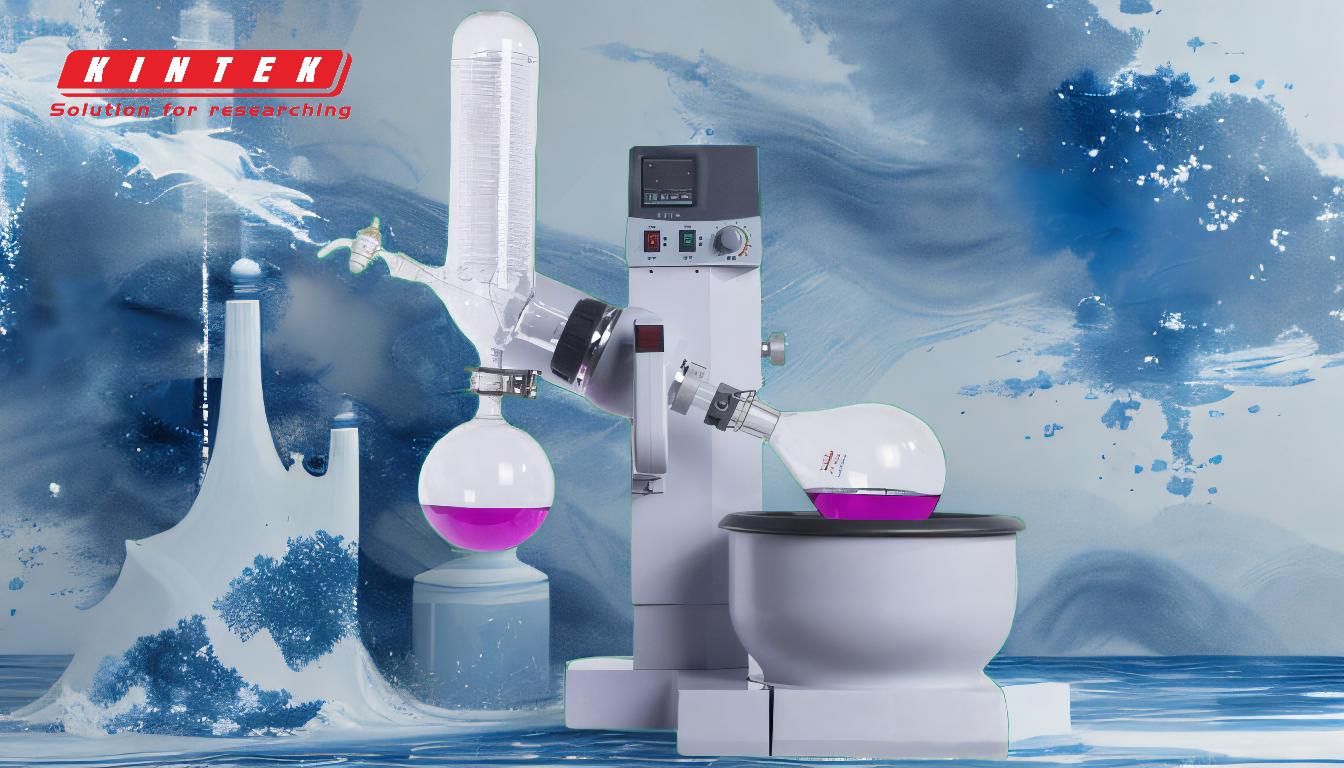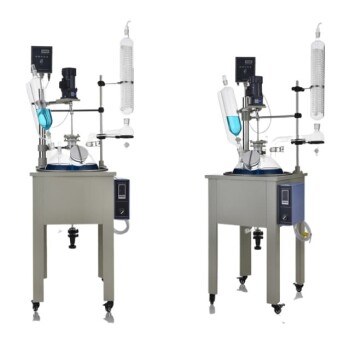A rotary evaporator is commonly used for solvent evaporation and concentration, but there are several alternatives depending on the specific application and requirements. Key alternatives include the Falling Film Evaporator, which operates similarly to a Vertical Shell & Tube Heat Exchanger, and the Wiped Film Evaporator, which uses thermal separation in a thin, turbulent liquid film. Additionally, solid-phase extraction (SPE) is a reliable alternative for liquid-liquid extraction, offering higher efficiency and lower reagent consumption. For cooling needs, dry ice condensers or jury-rigged chillers can sometimes replace traditional chillers. Each alternative has its own advantages and is suited to different laboratory or industrial scenarios.
Key Points Explained:

-
Falling Film Evaporator:
- How it works: This evaporator operates similarly to a Vertical Shell & Tube Heat Exchanger. The liquid flows downward as a thin film along the inner walls of heated tubes, allowing for efficient evaporation.
- Advantages: It is highly efficient for heat-sensitive materials due to the short residence time and low operating temperatures.
- Applications: Commonly used in the food, pharmaceutical, and chemical industries for concentrating heat-sensitive liquids.
-
Wiped Film Evaporator:
- How it works: This device uses a rotating wiper blade to spread the liquid into a thin, turbulent film on the heated surface, enhancing thermal separation.
- Advantages: It offers high heat transfer rates and is suitable for viscous or heat-sensitive materials.
- Applications: Ideal for distillation, concentration, and deodorization processes in industries like petrochemicals and pharmaceuticals.
-
Solid-Phase Extraction (SPE):
- How it works: SPE is a method used for liquid-liquid extraction, where analytes are separated from a liquid mixture using a solid phase.
- Advantages: It is highly efficient, reliable, and consumes fewer reagents compared to traditional methods.
- Applications: Widely used in environmental testing, food analysis, and the formulation of radiopharmaceuticals.
-
Dry Ice Condenser or Jury-Rigged Chiller:
- How it works: These alternatives can be used to cool the condenser in place of a traditional chiller. Dry ice provides extremely low temperatures, while a jury-rigged chiller can be a makeshift cooling system.
- Advantages: Cost-effective and useful in situations where a traditional chiller is not available.
- Applications: Suitable for small-scale or temporary setups, though not always practical for large-scale or continuous operations.
-
Comparison and Suitability:
- Falling Film vs. Wiped Film: Falling Film Evaporators are better for less viscous liquids, while Wiped Film Evaporators handle viscous materials more effectively.
- SPE vs. Rotary Evaporator: SPE is more efficient for extraction processes, especially when dealing with complex mixtures, whereas rotary evaporators are better for simple solvent evaporation.
- Chiller Alternatives: Dry ice condensers are useful for short-term or small-scale applications, but traditional chillers are generally more reliable for continuous use.
By understanding these alternatives, you can choose the most suitable method based on your specific needs, whether it’s for solvent evaporation, extraction, or cooling. Each option has its unique benefits and applications, making it important to evaluate your requirements carefully.
Summary Table:
| Alternative | How It Works | Advantages | Applications |
|---|---|---|---|
| Falling Film Evaporator | Liquid flows as a thin film along heated tubes for efficient evaporation. | Highly efficient for heat-sensitive materials; low operating temperatures. | Food, pharmaceutical, and chemical industries. |
| Wiped Film Evaporator | Uses a rotating wiper blade to create a thin, turbulent film for thermal separation. | High heat transfer rates; suitable for viscous or heat-sensitive materials. | Petrochemicals, pharmaceuticals, distillation, and deodorization. |
| Solid-Phase Extraction (SPE) | Separates analytes using a solid phase for liquid-liquid extraction. | Highly efficient, reliable, and consumes fewer reagents. | Environmental testing, food analysis, and radiopharmaceuticals. |
| Dry Ice Condenser/Chiller | Provides cooling using dry ice or makeshift systems. | Cost-effective; useful when traditional chillers are unavailable. | Small-scale or temporary setups. |
Need help choosing the right solvent evaporation solution? Contact our experts today for tailored advice!












